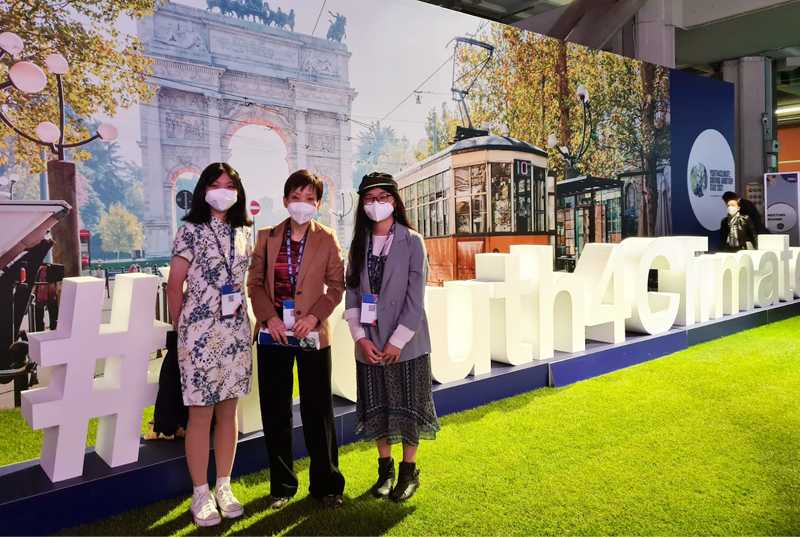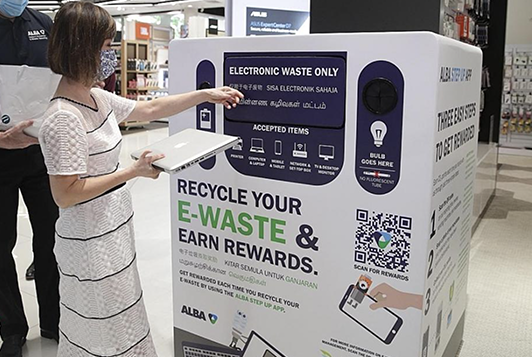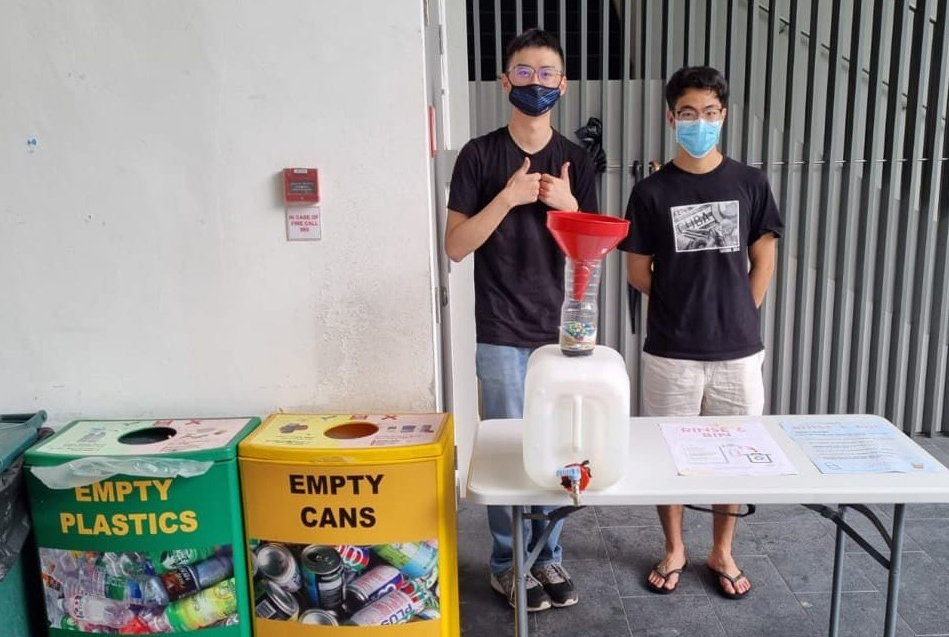Year 2 School of Business Student Liew Bing En Ryan and his team learnt that a person in Singapore generates the equivalent of two bowls of rice in daily average food waste after researching and speaking to experts from the National Environment Agency.
Ryan reflected: “During the research process, we realised that the pain points identified are already being addressed by many organisations in the field. This highlighted the complexity in tackling these issues even when equipped with resources and domain expertise.”
Nonetheless, under the Seeds of Good Programme, the students found an opportunity to advocate for a change in consumption habits within the NUS community.
Advocating for reduced food wastage
Using an Instagram account, @TwoBowlsDaily, the team presented statistics and gave tips on food waste in a fun, easy and personal manner. They partnered with UglyFood to collect orders and set up an advocacy booth in NUS UTown to encourage students to purchase and consume visually less appealing food.
Despite the team’s enthusiasm to bring UglyFood to the NUS community, order rates were unexpectedly low due to low threshold of acceptance for blemishes and convenience of purchasing from alternative sources within NUS.

With expectations of low foot traffic to their collection booth coupled with COVID-19 restrictions, the team sourced for sponsors to hold a small giveaway at their booth. After the giveaway, the team adapted to an unmanned booth model so that students can refer freely to the printed information without becoming callous to overzealous advocates. This was well-accepted by the transient crowd.

Additionally, instead of waiting for passer-bys, the team also approached UTown stall vendors to share about good practices to prevent over-ordering. Alas, they received lukewarm responses as convenience usually dominates all other options.
Expectations versus reality
The team experienced first-hand the complexities of changing consumption habits and offered their insights and findings from their project with UglyFood. Year 2 School of Computing student Ngo Ngoc Phyong Uyen reflected: “Current efforts focusses more on repurposing and redistributing food waste rather than reducing food waste at its core.”
The team hopes that their Instagram page which recorded 2,160 page views from March to April 2021 was able to inspire others to be mindful of their consumption habits within their own capacity. They are also thankful for the experience as they acquired soft skills such as event planning and management while advocating for a sustainable lifestyle among students at the same time.
| Got a project in mind? |
| If you would like to initiate a community engagement project, email community.engagement@nus.edu.sg |







